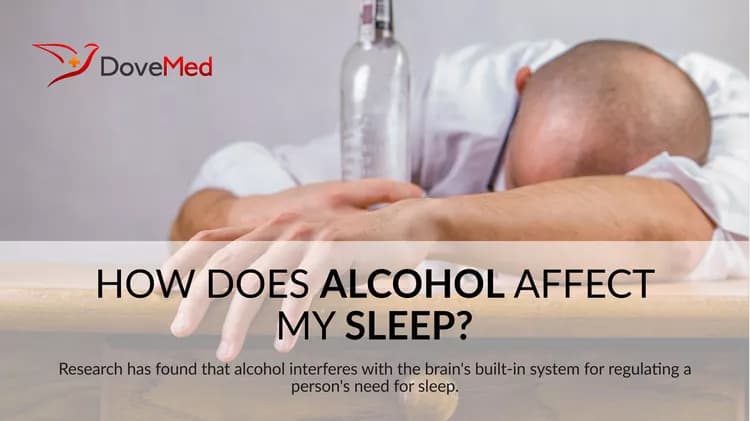Alcohol is often perceived as a well-known remedy for inducing sleep. Being a sort of drug, it calms down the body and mind for some time and therefore, helps an individual fall asleep soon. This is not surprising because many drugs are known to effect sleep patterns in some way or the other way. While alcohol might cause drowsiness, the quality of sleep usually deteriorates during the second half of the sleep period. Restlessness at night and frequent wake ups are some of the associated problems, when the relaxing effect of the alcohol wears off.
What actually happens is that the alcohol in the body keeps one in the lighter stages of sleep. This is the period during which the body gets ready to enter the deep sleep stage, which is rapid eye movement (REM). Alcohol interferes with REM sleep and, therefore, prevents the person from having a deep, sound sleep. While there was previously not enough research to explain this fact, the researchers from the University of Missouri (MU) School of Medicine in Columbia have uncovered several mysteries related to the correlation of sleep and alcohol.
The team of researchers, led by Mahesh Thakkar, Associate Professor and Director of Research in the MU School of Medicine’s Department of Neurology, has been studying the relationship between sleep and the consumption of alcohol for over 5 years. After years of hard work and research, they have concluded that alcohol interferes with the brain’s built-in system for regulating a person’s need for sleep. Thakkar and team found that alcohol affects the body's sleep homeostasis and can cause insomnia over time.
Sleep homeostasis is the body’s sleep-regulating system that balances the relation between sleep duration and duration of wakefulness. In case there is a loss or shortage of sleep due to some reason or any sort of disturbance, the body produces a naturally occurring sleep-regulating substance called adenosine that increases a person’s need for sleep. Sleep homeostasis may also be affected if the sleep times are changed or if you sleep early, such that the person may wake up earlier than before, like in the middle of the night. According to research, alcohol alters the sleep homeostatic mechanism and forces the person to go to sleep soon. As a result, the sleep pattern is disturbed and the person is awakened during the latter half of the sleep/night.
Study shows that a regular and continuous intake of alcohol prior to sleep can reduce the sleep-inducing effect of alcohol over time, but its negative effects may continue to rise. The sleepless nights, in turn, lead to daytime fatigue and drowsiness, affecting the overall well-being of the individual. Therefore, before using alcohol as a sleeping aid, one must keep in mind its negative health consequences.
The continuous disturbed sleep may also lead to a chronic condition called insomnia, which further augments the risk of development of alcohol dependence, making the individual fully addicted to alcoholic drinks.
Alcohol should be considered more as a sleep disrupter than sleep promoter. With this though in mind always, one can keep control over their alcohol intake.
Related Articles
Test Your Knowledge
Asked by users
Related Centers
Related Specialties
Related Physicians
Related Procedures
Related Resources
Join DoveHubs
and connect with fellow professionals


0 Comments
Please log in to post a comment.